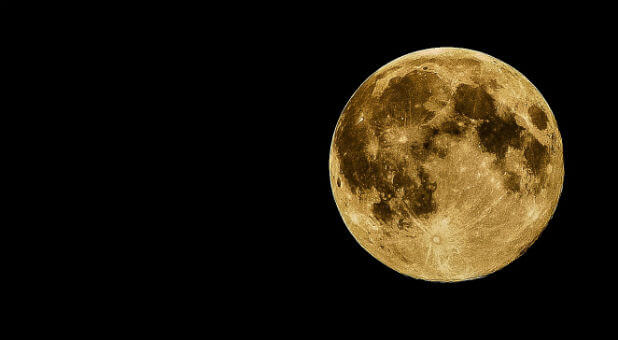With the great American eclipse less than two weeks away, many are wondering how eclipses were viewed in the Jewish tradition.
The Jewish website Chabad.org has published a report by Rabbi Yehuda Sharpin entitled “Does Judaism see Solar Eclipses as Bad Omens” to answer this question.
To start with, the Talmud does in fact state that an eclipse Is a bad omen for the world, a darkness coming because of sin. However, the ancient Jews knew that eclipses were natural phenomenon and could even predict them. The rabbis viewed eclipses as warnings against sin and judgment. Some held that eclipses were an opportunity for prayer and introspection.
In Genesis 1:4, the sun, moon and stars are called signs for the appointed times, and the Jewish commentary on the Torah includes eclipses as signs. Another interesting Scripture is Jeremiah 10:2, which tells Israel not to be terrified by the signs in the sky even though the nations are terrified. According to the sages, the sign of the eclipses holds no fear for those who act properly.
We find ourselves concurring with most of these rabbinical beliefs about eclipses. We understand eclipses to be signs from God not only because of Genesis 1:14, but also as signs to the church as announced by Peter on the day of Pentecost (Acts 2:17-21). For believers, we agree that eclipses are times of prayer and introspection, a time to unify in Christ as shown by the symbol of the moon, representing believers (Ps. 89:37), joining in the sun, representing Christ (Ps. 19). We also agree that for non-believers eclipses are a warning of judgment to come and therefore and are fearful omens.
Those themes of prayer and introspection for believers and fear of judgment for non-believers are heightened during the 40-day Hebrew season of Teshuvah, which begins with the great American eclipse on Aug. 21 and ends 40 days later on Sept. 29, the Day of Atonement. The world Teshuvah literally means “to return to the presence of the Lord,” and the psalm associated by the rabbis with Teshuvah, Psalm 27, speaks of the blessings of dwelling in God’s presence. On the other hand, the second Scripture associated with Teshuvah, Ezekiel 33, warns believers of punishment for failure to warn sinners, and warns sinners of judgment to come. Thus, Teshuvah is an invitation to intimacy and a warning of judgment.
We invite you to join with us in a solemn assembly on Aug. 21 during the great American eclipse and in prayer for repentance, church unity and healing our land during Teshuvah. For more information, see our website at www.Teshuvah 2017.com or read our recently published book, Teshuvah Eclipses.
And don’t forget to pray for the peace of Jerusalem.












